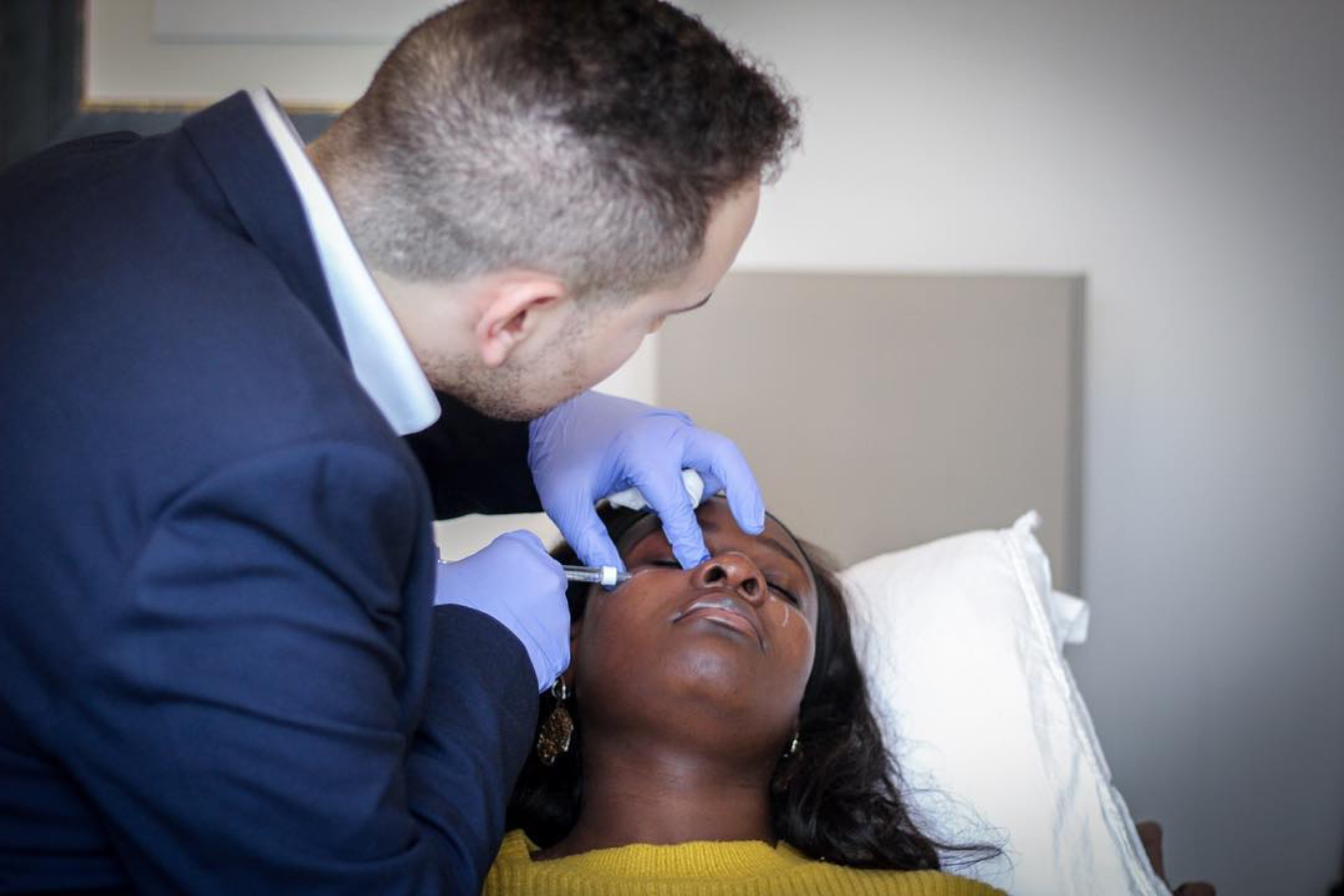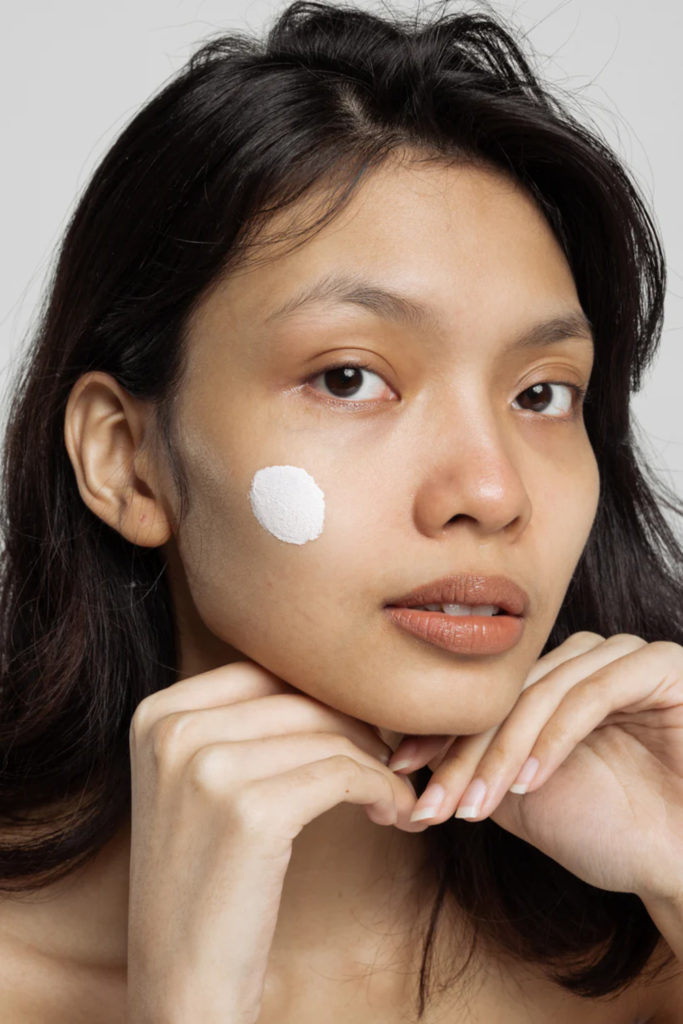A Guide To Collagen With Dr Ahmed, aka The Aesthetics Doctor
By
2 years ago
Dr Ahmed explains to us just how collagen works (and how it impacts our skin)

By now, you should be somewhat familiar with the term ‘collagen’. The beauty buzzword is regularly brought up by skincare brands, influencers and magazines (we take full responsibility for this one), but it’s not always explained just what it is. C&TH Beauty Director Nathalie Eleni spoke to Dr Ahmed El Muntasar, otherwise known as The Aesthetics Doctor, to find out everything we need to know. Read on for our deep-dive collagen guide.
A Guide To Collagen With Dr Ahmed, aka The Aesthetics Doctor

Dr Ahmed El Muntasar, The Aesthetics Doctor
What Is Collagen?
‘Collagen is the most popular protein in our body. It’s great for our connective tissues and great for the skin as it gives the skin elasticity,’ says award-winning facial aesthetics doctor Dr Ahmed. ‘When you look at a baby and you look at their skin, it looks so hydrated and bouncy – that’s because of its high collagen content.
‘Not all types of collagen are the same, there are multiple types out there; the type you want is type one which is the youthful, rejuvenating type. Types three and four are more for healing scars.’
What Happens When Collagen Production Slows Down?
‘Our collagen production dwindles by one percent each year from the age of 25 onwards,’ explains Dr Ahmed. ‘When collagen production slows down, that’s when you start noticing ageing and your skin might not recover from an injury as quickly. ‘Your skin might start looking dull or deflated, lines will be more noticeable and injuries will scar more easily.’
Why Does The Menopause Impact Skin Youthfulness?
‘There are a variety of different reasons why women, when going through menopause, experience a lack of youthfulness in the skin. One of them is that there is a drastic reduction of collagen production, and the other is a reduction of oil production which makes skin dry out. During this time, there are a lot of things that contribute to the reduction of elasticity and youthfulness to the skin. The face also has fat pads, which can slide over time; due to the lack of laxity during menopause sometimes these fat pads start to move down even further.’
How Do You Advise Maintaining Collagen When We’re Younger ?
This is a case of finding ways to prevent a slow in production, says Dr Ahmud: ‘When you’re younger it’s all about using preventative methods and taking care of your skin. Build a basic skincare routine, formed around cleansing, hydrating and using products that contain ingredients such as zinc and vitamin C as these will maintain collagen production for longer. SPF is also vital since one of the main causes of collagen breakdown is sunshine and the denaturing of DNA from sun rays, so SPF is the most important factor.’
What Can We Do To Help Increase Collagen Production?
Treatments
‘If you’re someone that is seasoned in getting treatments done, you will know that every other treatment out there these days promises that it will increase your collagen – this is simply not the case,’ says Dr Ahmed. ‘A lot of them, yes, will increase your collagen, but oftentimes it won’t be the type of collagen you want (it will usually end up being type three or four collagen, which is a scar-like collagen). You want type one, and the main treatments that massively increase type one collagen are micro-needling, Ellanse, Silhouette Soft Threads and Lanluma.’
Skincare
‘Some skincare ingredients can help with production, and some can potentially slow down the break of collagen,’ says Dr Ahmed. ‘There are a lot of products that say “this will boost your collagen production” and I’m not so sure about that; some might increase it a bit but the main focus is preventing the reduction, so sticking to the kinds of skincare products we outlined earlier (like SPF, vitamin C and zinc) is a good start.’
Diet
‘Since collagen is a protein, anything that contains amino acids such as chicken, meat, fish, bone marrow broth will help a lot. Ingredients like blueberries, raspberries and blackberries can also help with the protection of the DNA in the protein, which will help reduce the breakage of collagen.’
Supplements & Powders
This is a slightly iffy area when it comes to collagen. ‘I would say that 99 percent of them don’t work, as we now know that the gastric acid in the stomach usually breaks supplements down and makes them less effective,’ argues Dr Ahmed. ‘But there are some new ones that have been made slightly differently supplement-wise that might actually help with your own collagen production and reduce the breakage of collagen – but don’t expect dramatic results. If you really want results, treatment is the way forward.’
Featured image courtesy of Dr Ahmed










